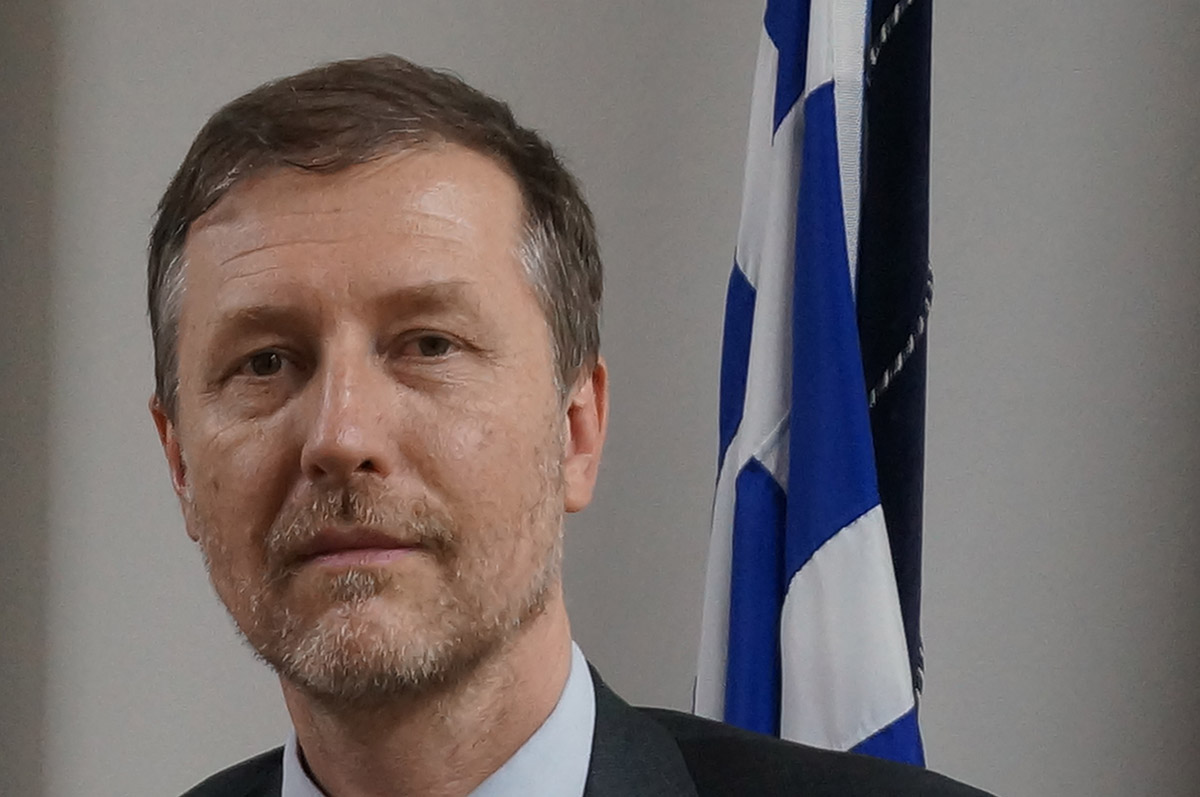RIO DE JANEIRO, BRAZIL – Two years after the social outbreak in Chile that denounced the precariousness of life and led to creating a Constituent Assembly that is currently debating the drafting of a new Magna Carta, human rights violations continue to be recorded in the country. The results in terms of accountability remain “uncertain”, warned the United Nations.
While the Public Prosecutor’s Office worked to “strengthen its capacity to address human rights violations”, progress “has been slow”, denounced in an interview with Europa Press, the representative for South America of the United Nations High Commissioner for Human Rights (OHCHR), Jan Jarab.
Read also: Check out our coverage on Chile
In this sense, “the delay in the judicial processes generates a feeling of helplessness” in the victims. At the same time, many “feel affected by the lack of express recognition by the State that human rights violations have been committed”. For example, Jarab detailed, “the State has not offered public apologies to the victims”.

Precisely this Monday, the UN Human Rights Office published a report in which it regrets that “obstacles persist in the victims’ access to justice, reparation, and guarantees of non-repetition, among other fundamental rights”, despite “the State’s efforts to incorporate the recommendations” that were made in 2019 after the outbreak.
This same document alerts, regarding the police function, and although “a reduction in the use of riot shotguns”, which caused hundreds of cases of eye trauma in 2019, is observed, as well as “the ongoing updating of several protocols governing the use of force by Carabineros”, there is still an “inappropriate use of tear gas cartridges and water cannons against people”. Also, in some cases, Carabineros officers “have failed to assist injured persons,” the UN regrets.
CONTINUITY OF HUMAN RIGHTS VIOLATION
In this context, Jarab denounced that “several human rights violations documented at the time have continued to be registered in these two years”, such as the excessive or arbitrary use of force, for example, against peaceful demonstrators or health brigades, as well as “the tendency to disperse ‘unauthorized’ demonstrations”, something “contrary to international standards for peaceful assembly”.
Precisely about the promised reform of Carabineros, a police institution widely criticized for being behind the repression in the framework of the protests, although Jarab admitted that it is “a long-term project”, the renovations implemented so far “do not sufficiently incorporate the role that civil society, other powers of the State and autonomous organs of the State should have in the supervision of their work”, he regretted.
He also described as “alarming” the lack of recognition of the facts and acceptance of institutional responsibility for the Human Rights violations since October 2019. “If responsibility is not recognized, how can we move towards a profound reform, which grants effective guarantees of non-repetition?” he questioned.
In turn, the UN report highlighted as “excessive” the use of preventive detention in cases of people charged with alleged crimes in the context of demonstrations. At the same time, it identifies “problematic changes” regarding recently approved laws.
Among them, he pointed to the ‘Anti-barricades Law’, adopted in 2020 and which allows aggravating the penalties corresponding to crimes of disturbing public order, as well as a legislative proposal that assigns to the Armed Forces the safeguarding of critical infrastructure and which could result in “the militarization of citizen security”.
“It is of concern that changes are being adopted or proposed that contravene international standards, such as the criminalization of protest and exemption from ex-ante criminal liability for officials who use their weapon in various situations,” the UN office lamented.
About legislation, the document also refers that the right to peaceful assembly is still regulated by a decree dating from the dictatorship era, which “in practice generates a system of authorization of peaceful assemblies and allows the dispersal of unauthorized meetings, so it is urgent to “increase the protection of the right to peaceful assembly.”
On the other hand, the United Nations High Commissioner for Human Rights noted “harassment and violence” against health brigades, human rights observers, and journalists in its report. “Although it may be uncomfortable for the authorities, the work of human rights defenders is essential and must be protected,” warned Jarab.
A CONSTITUTION WITH HUMAN RIGHTS AT ITS CORE
The convention, the result of a referendum called the clamor in the Chilean streets and charged with drafting a renewed Constitution to replace the one inherited from dictator Augusto Pinochet, began debating the norms that will form the Magna Carta last week.
In this sense, formulating a new Constitution “is a great opportunity to deepen the Human Rights commitments assumed by the State.” Although the decision corresponds to the citizens, Jarab insisted that “Human Rights must be at the center of the constituent process.”
Some of the issues to which special attention should be paid are, among others, to strengthen the dimension of economic, social, and cultural rights, as well as the protection of the rights of indigenous peoples, especially in a “profoundly unequal” society where many people “see their economic, social and cultural rights affected”, and with an indigenous population to whom the State “has not offered measures that can overcome the historical and present injustice they suffered and continue to suffer.”
“Furthermore, for the legitimacy of the new Constitution, the process itself and its inclusive nature are as important as its results,” concluded Jarab.
The OHCHR, for its part, celebrated “the Constituent Convention, which stands out for its diversity and participation, being the first [gender] parity constituent process in the world,” and that in its role of drafting a new Constitution, “has the possibility of channeling the social demands presented in the social demonstrations and address the structural causes of the protests that began in 2019.” o

